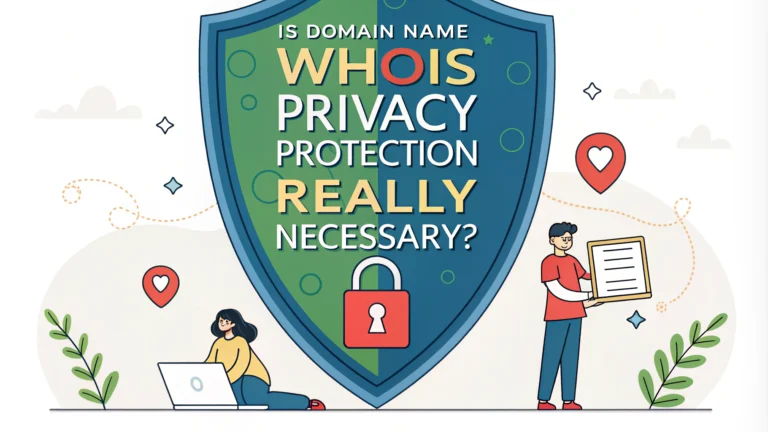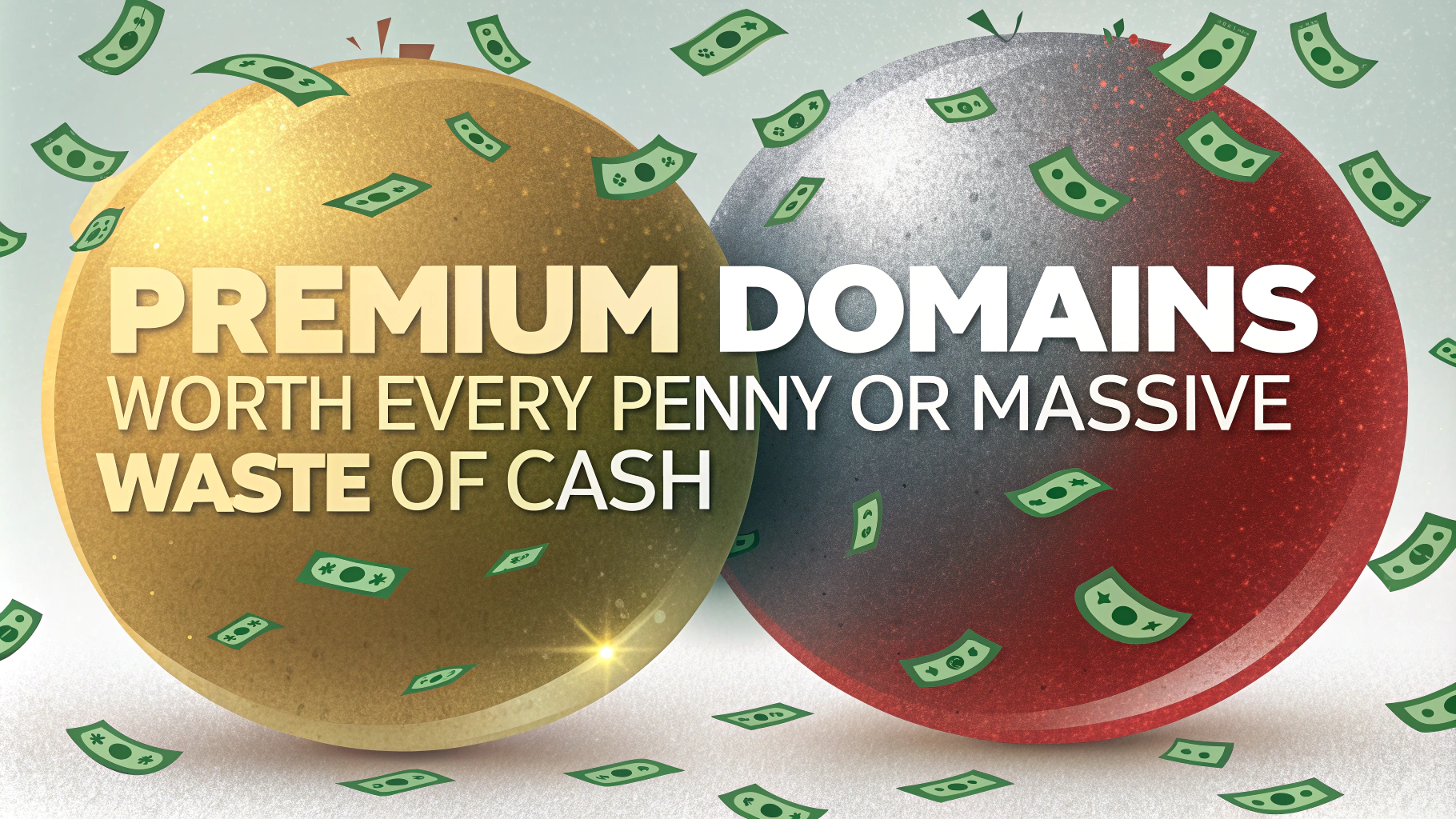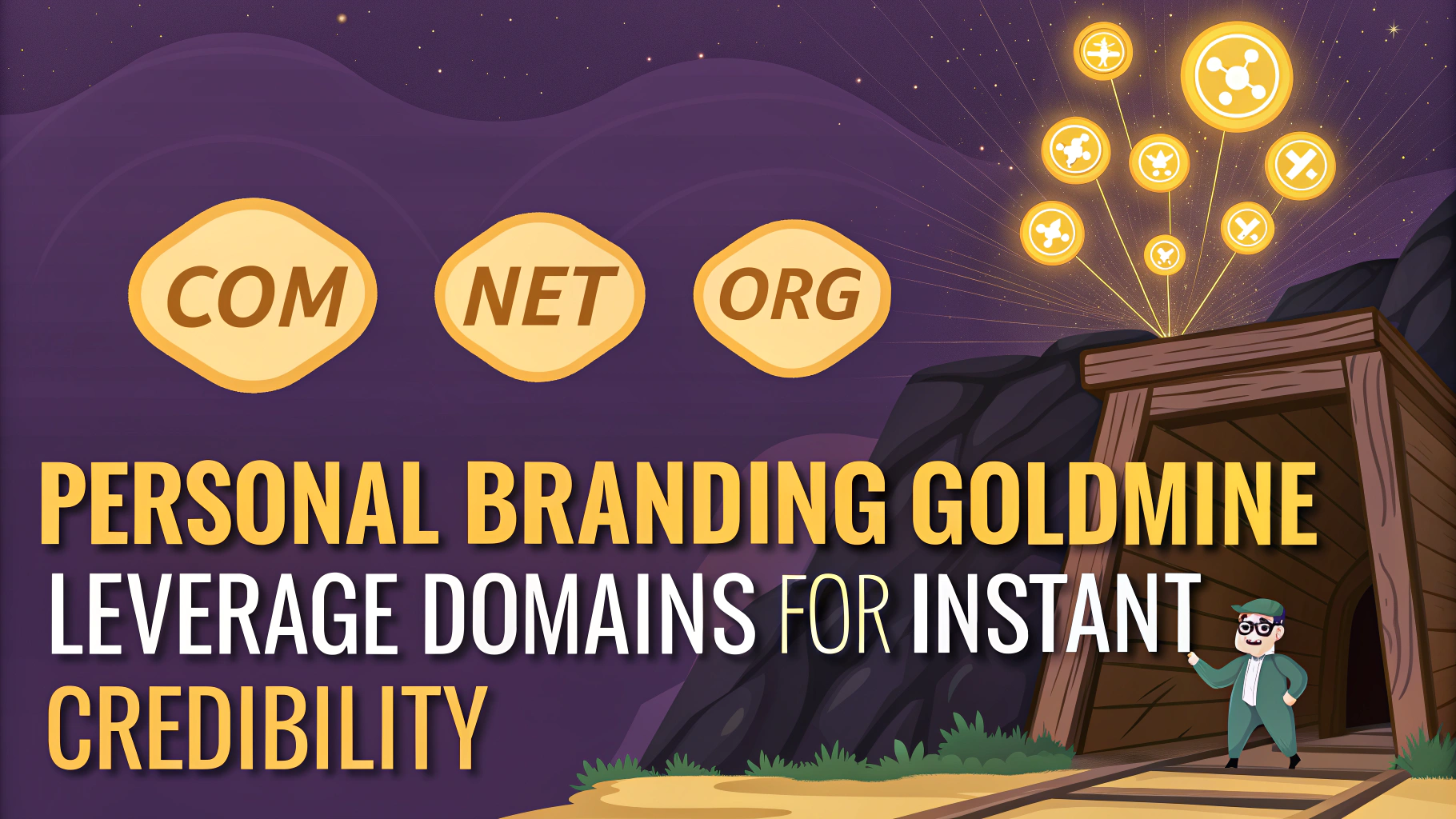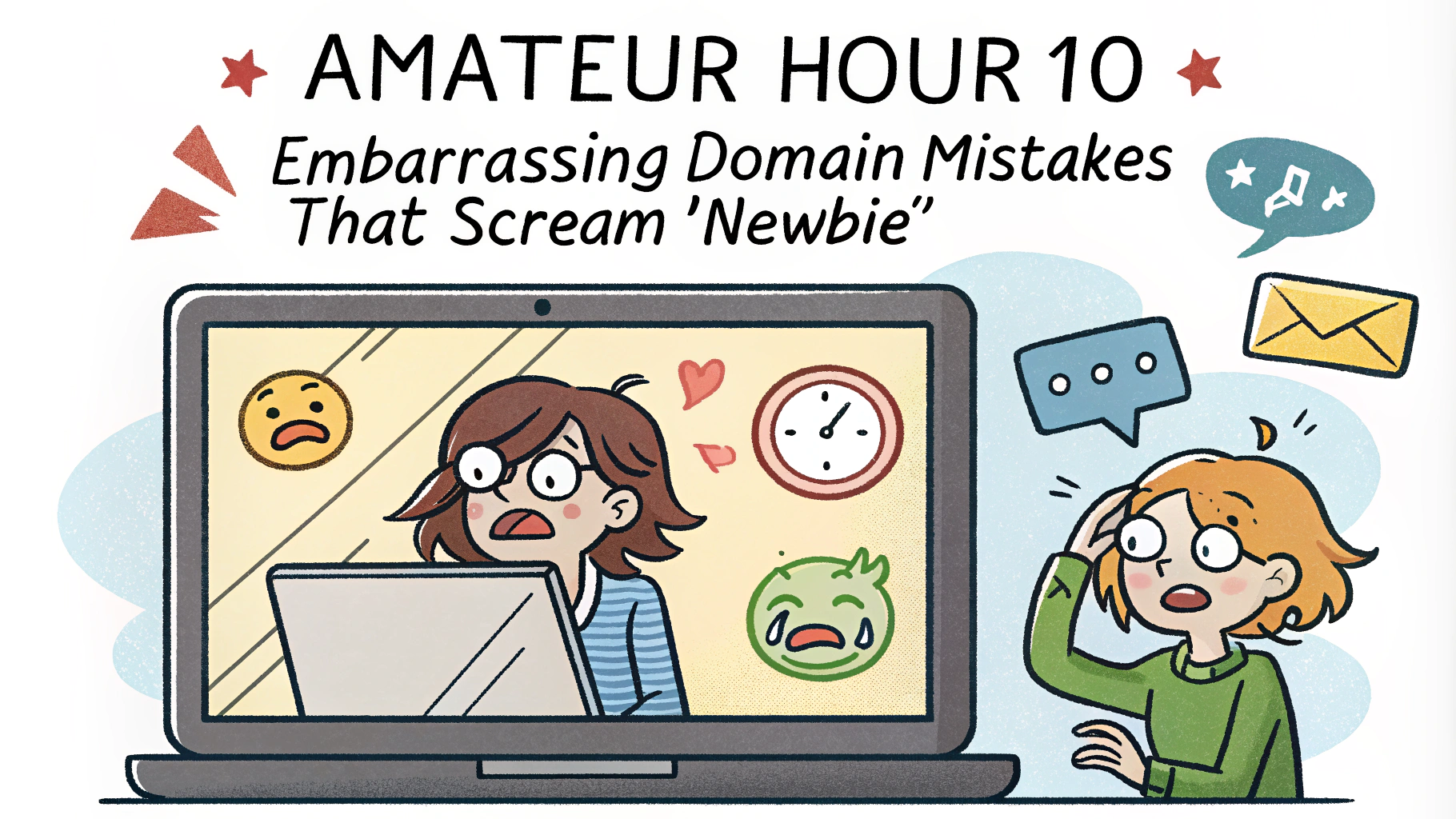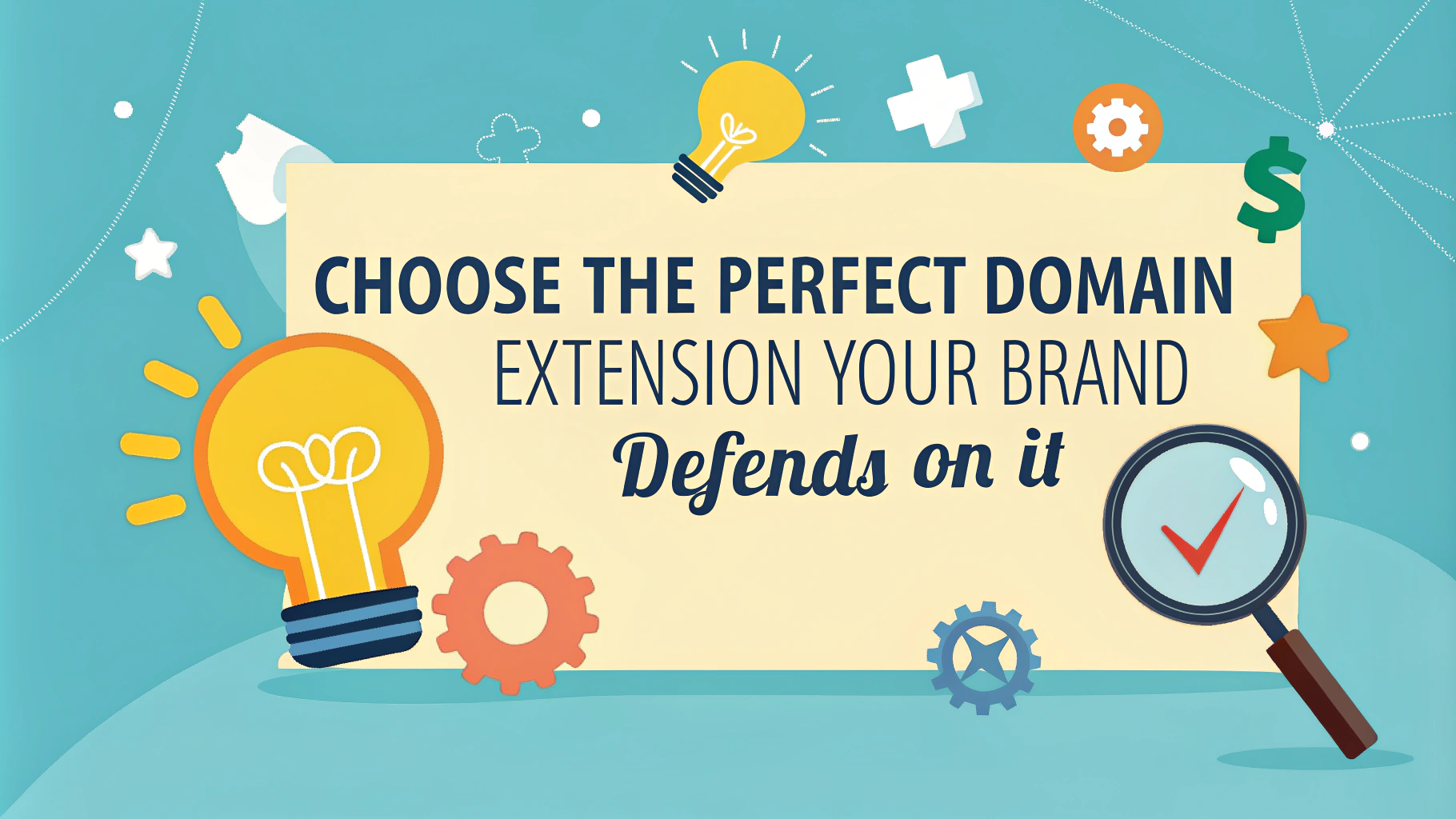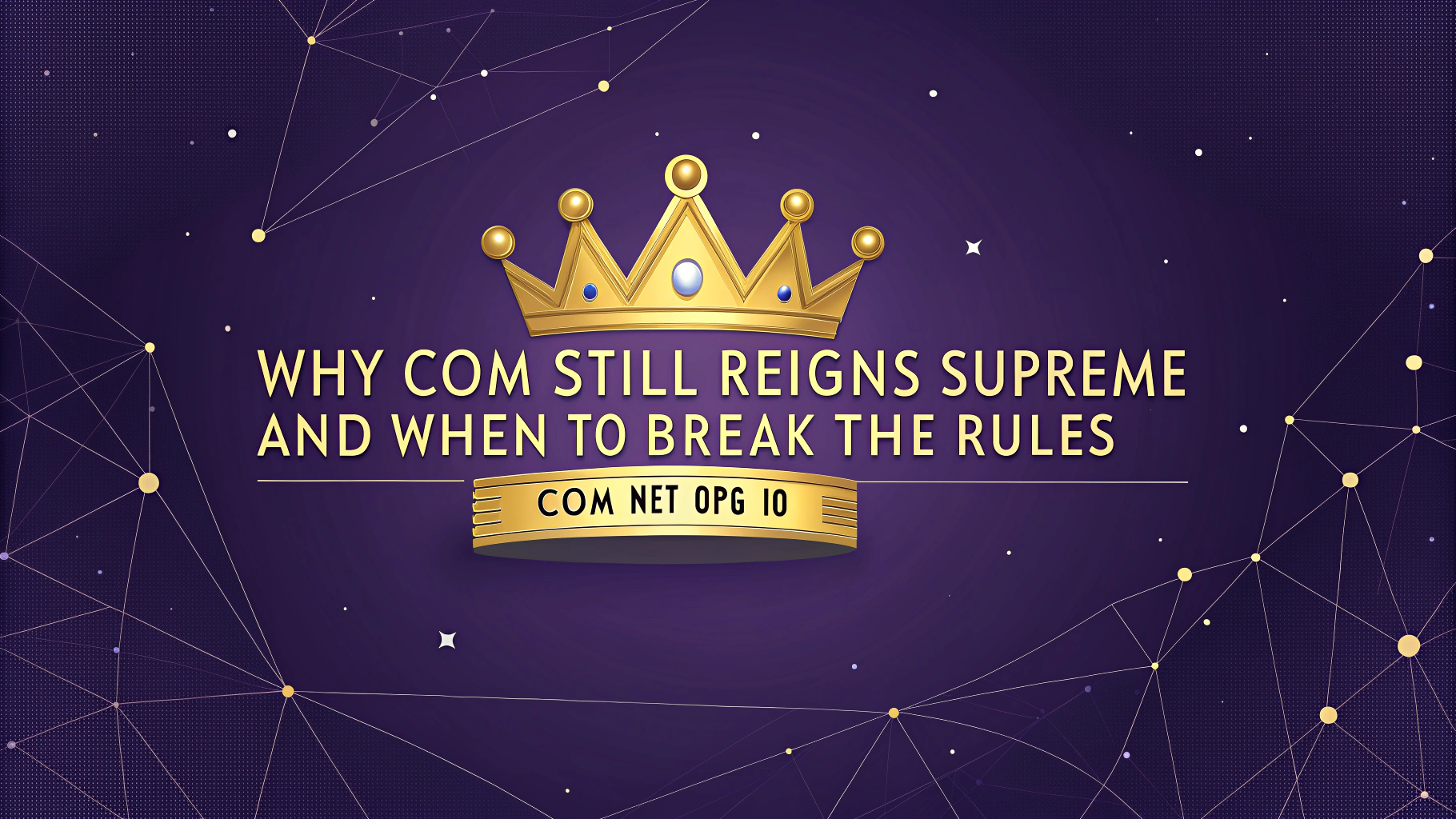When you’re registering a domain name, one of the choices you need to make is whether to buy the domain whois privacy protection add-on.
Domain registrars often promote the service with alarming words like privacy, protection, security, identity theft etc.
But is it worth paying an extra $10 per year to hide your contact details, and how much are you really at risk if you don’t?
This guide will explain everything you need to know about domain name privacy protection.
What is domain name Whois data?
When you buy a domain name — either by registering an unregistered name or acquiring a domain from someone else — you need to provide detailed contact information to register you or your company as the official registrant of the domain.
This data is recorded and maintained at the domain name registry for the particular domain extension. Anyone can search to see who is the registrant/owner of a domain, and your full contact information will be provided.
For some registrants, this is not a problem, as their business address, phone number and related email addresses are freely available anyway.
But there are plenty of people who don’t want their home address or mobile phone number to be made public.
Types of Whois Contact Info Required
There are 3 separate sets of contact details that need to be provided for domain whois data:
- Registrant Information
- Billing Contact Info
- Technical Contact Info
For individuals and personal registrants, all of them will normally have the same information ie. the billing and technical contact will be the registrant.
For businesses though, there may be totally different contact details for all three — as billing and payments for renewals may be handled by finance personnel, and technical issues may be managed by the I.T. department or your website’s hosting provider.
Who can Access your Domain’s Whois information?
Absolutely anyone.
From the weirdo who may be stalking you, to competitors, hackers, cyber criminals and anyone who doesn’t like what you have to say on your website.
Although we would like friendly parties to be able to get in touch with us, the general concern is that our personal information can — and often will — be used illegally.
What are the risks of your whois data being openly available ??
Personal whois contact info risks:
- Harassment
- Identity Theft
- Social Engineering
- Physical Safety
- Spam
Business whois contact info risks:
There are many reasons not to openly disclose the contact information of the people in your finance department, and who is responsible for your website.
- Billing Contact – this is quite obvious. On top of managing payments, finance staff usually have access to sensitive information too. It’s best not to have their name, phone and email contact openly available.
- Technical Contact – this may be your internal I.T. Manager, a freelance web designer, your Ad Agency or the hosting company. This contact also controls the email accounts for the entire company. Do you really want their identity and contact details to be easily accessible?
Information security is increasingly critical and the goal is to only provide information if it’s absolutely necessary.
FAQs about Domain Whois Protection
Q: Can people still get in touch if whois contact details are protected?
A: Yes. Your domain will show a unique email address from the whois protection service provider that will normally forward any incoming mail to your email address.
Q: Why is domain privacy protection so expensive?
A: Some domain name registrars offer the service for free (or a negligible fee) while others treat it as a value-added product to make money from customers. Depending on which registrar you use, domain privacy services can be free, cheap or relatively expensive.
Q: How to get domain privacy services for free?
A: Hunt around and use a registrar that offers free whois privacy services.
Q: Are some domain privacy providers safer/better than others?
A: All the leading domain registrars offer similar privacy protection services. Usually, the main difference is in the price charged.
Conclusion
When you register a domain name, your contact details and personal identity will be made available to anyone on the Internet.
Your full name, address, email and phone number can be found very easily by bad actors and cyber criminals.
You may think you have nothing to hide, but you simply don’t know how the data you reveal may come back to harm you in the future.
The thing is — once your information gets out there, it will be compiled and archived into massive databases and can never be deleted.
It’s permanent, so think about it carefully. If in doubt, it may be better to take the safer option to enable privacy protection for your domain. You can always remove it in the future. But if you try to save the $10 now and subsequently change your mind, it will be too late.
If the issue is the cost of the domain privacy service and you don’t like how much your current registrar is charging for it, you can always register your domain at one of the registrars that offer free privacy protection.

